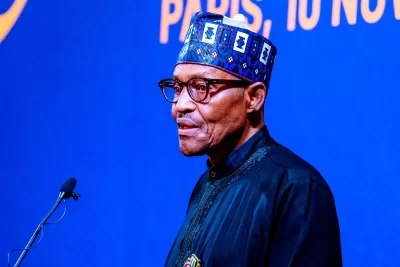Buhari in his own words: A presidency through quotes

Few Nigerian leaders have left behind quotes as memorable—or as debated—as the late Muhammadu Buhari.
From his tough stance on corruption to controversial remarks on gender roles and youth, Buhari’s words often captured both his vision and the contradictions of his presidency. Below is an analysis of some of his most famous quotes and the national conversations they sparked.
“I belong to everybody and I belong to nobody”
— Inaugural Address, May 29, 2015
This was Buhari’s most quoted line, delivered during his swearing-in ceremony after defeating an incumbent president. It was a bold statement of independence, interpreted as his promise to govern above partisan or sectional interest. It reassured Nigerians weary of political patronage and nepotism. However, over time, critics challenged the sincerity of the statement, pointing to lopsided appointments and regional bias. Yet, the line endures as Buhari’s clearest declaration of intent to unify and be impartial—even if the implementation fell short of expectation.
“If we don’t kill corruption, corruption will kill Nigeria”
— Anti-Corruption Summit, 2016
This phrase came to define Buhari’s central agenda. As a former military head of state with a reputation for discipline, Buhari rode into office on a wave of anti-corruption sentiment. This quote framed corruption not as a vice but as an existential threat to Nigeria’s survival. It resonated with a public frustrated by years of mismanagement. While some high-profile arrests and asset recoveries occurred, many argue that the anti-corruption war was selective and slow-moving. Still, this quote captured the urgency Buhari sought to bring to governance.
“Technically, we have won the war against Boko Haram”
— Media interview, December 2015
Just months into his presidency, Buhari declared that Boko Haram had been “technically defeated.” At the time, major towns in the North-East had been liberated from insurgent control, but suicide bombings and ambushes continued. Critics called the claim premature and insensitive to ongoing casualties. This quote is now remembered as an example of political optimism colliding with harsh security realities. While territorial gains were made, insecurity evolved in other forms—banditry, herder-farmer clashes, and kidnappings—denting Buhari’s security legacy.
“My wife belongs in my kitchen, my living room, and the other room”
— Press conference in Germany, 2016
Arguably Buhari’s most controversial quote, this comment was made in response to criticism from his wife, Aisha Buhari, who had publicly questioned his leadership and those around him. Delivered in front of German Chancellor Angela Merkel, the quote triggered national and international backlash. Feminists, rights groups, and even political allies condemned it as outdated and demeaning. It highlighted a traditionalist worldview at odds with modern gender expectations—and damaged Buhari’s reputation among progressive voters.
“Nigerian youths want to sit and do nothing”
— Commonwealth Business Forum, London, April 2018
This quote, paraphrased from Buhari’s remarks about youth entitlement and joblessness, sparked the viral #LazyNigerianYouths trend. Many young Nigerians, especially online, saw it as dismissive of their struggles in a tough economic climate. While Buhari may have been speaking to concerns over unemployability and skill gaps, the tone was widely seen as unsympathetic. The quote exposed a generational disconnect between leadership and the youthful majority, becoming a rallying cry for political awareness among young Nigerians.
______________
“You will be able to go to bed knowing you are safe”
— Inaugural speech, 2015
This promise, rooted in security and law enforcement reform, reflected the president’s military background and intent to restore order. However, with increasing reports of violence, farmer-herder clashes, banditry, and police abuses under SARS, many Nigerians felt less safe than ever. The #EndSARS protests of 2020 revealed the gap between this vision and the lived reality of many citizens. Buhari’s failure to stem violence or reform security agencies casts a shadow over this hopeful commitment.
Conclusion: Words That Echo, Promises That Divide
From hope-filled declarations to infamous gaffes, Buhari’s presidency was punctuated by quotes that revealed both his aspirations and limitations. While some words inspired a new political direction, others undermined public trust. As Nigeria reflects on the Buhari years, his quotes serve not just as slogans—but as milestones in a presidency defined as much by rhetoric as by results. (Vanguard)

